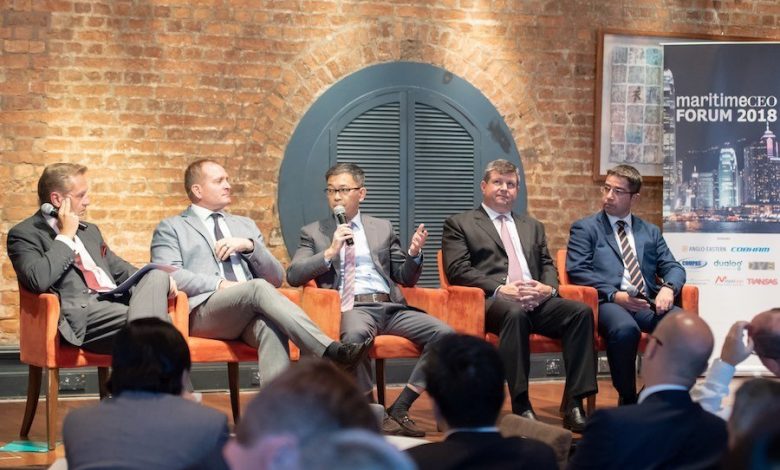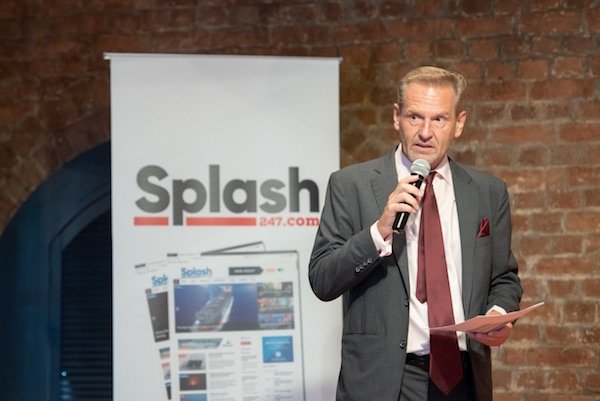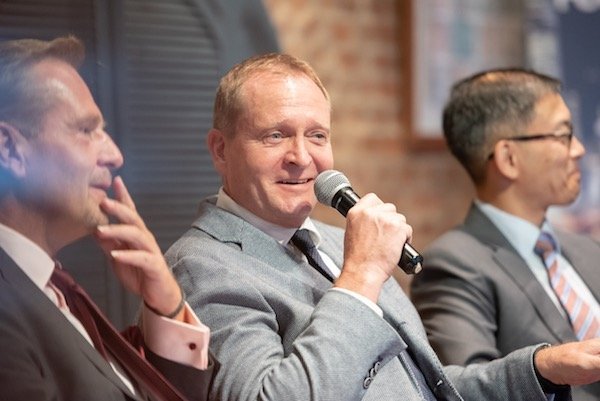Maritime CEO Forum: Sulphur cap like playing poker blind with half the cards

“Playing poker blind with half the cards,” was how moderator Thomas Söderberg, the founder of Tribini Capital, introduced the choices facing owners with the global sulphur cap less than 15 months’ away.
In a one-off special 2020 Vision panel at yesterday’s Maritime CEO Forum in Hong Kong, owners, managers, class and flag states debated shipping’s topic du jour.
Bjørn Højgaard, CEO of shipmanagement giant Anglo-Eastern, told delegates installing scrubbers was “insane”.
“If we had chosen chosen to solve this issue at source, via the refineries, it could have been done for $30bn,” Højgaard said. He warned that there would many maintenance issues that had yet to be fully understood by the industry at large.
Compliant fuels will not be blendable between one supplier and another, even between two different bunker ports, the shipmanager claimed, adding that they may also be unstable and have a short shelf life.
“We see today ships changing fuel from one to the other have had blackouts. There are safety issues,” Højgaard said.
Højgaard also predicted a global ban on open loop scrubbers within the next three to five years.
Jack Hsu, managing director of Oak Maritime and chairman of the Hong Kong Shipowners Association (HKSOA), also revealed he was not a fan of scrubbers
“I too am very much against scrubbers,” he told the audience at the top floor of the Foreign Correspondents’ Club in Hong Kong’s Central district, adding: “But as a public company from a hedging perspective we need to look into them.”
Nick Brown, marine and offshore director at UK class society Lloyd’s Register, warned those attending the exclusive, by invitation only gathering that it was now “increasingly challenging” to get good quality scubbers installed in time for January 1 2020. He said ships that burn 10,000 tons of fuel a year or more were likely to be the “magical figue” to opt for scrubbers.
Scott Bergeron, CEO of the Liberian Registry, revealed how his organisation has asked coastal states declare their fuel availability in the run up to the sulphur cap kicking in.
“Why do owners have to gamble?” Bergeron said. “We would like to see more transparency about what is available at ports around the world.”
Bergeron predicted open loop scrubbers would face greater regulation. For closed scrubbers there was aslo many issues still to solve, he said, such as where to discharge, how to store the waste onboard, and how to train crew.
“Coastal states are not doing enough to prepare for this,” Bergeron insisted.
LR’s Brown also voiced his concern about the extra workload there will be on the crew. He also predicted most ships will not have large enough fuel tanks.
One upshot of the cap, Oak Maritime’s Hsu predicted, would be less laden ships, and more ships waiting in port, whereby the ton/mile situation could shoot up.
The session heated up as Højgaard labelled the whole IMO 2020 debate a “red herring”.
“IMO 2050 on decarbonisation is the big deal,” he insisted, saying that shipping kept on doing incremental changes without looking at the big picture with different technology to decarbonise. Højgaard said he felt hydrogen could be shipping’s real fuel of the future.
“2050 will be shipping’s biggest challenge,” concurred LR’s Brown, claiming: “2020 will seem easy compared to that.”
From the floor, Mats Berglund, CEO of Pacific Basin, and a strong opponent of scrubber technology, argued that all scrubbers do is get ships to speed up and use more fuel.
“Every operator with a calculator makes a voyage calculation and decides the speed on two factors – the freight rate and the price of bunkers,” he explained, adding: “To argue that sulphur is environmentally friendly is incorrect as they will consume more fuel and go faster. It comes across as promoting scrubbers as a clean initiative, but it really is not, as they go fast. HFO should have been banned overall.”
Splash will be carrying reports from the Maritime CEO Forum all week.
The Maritime CEO Forum in Hong Kong was sponsored by Anglo-Eastern, Cobham, Compas, Dualog, DVB, Liberian Registry, Marlink and Transas. The next edition of the forum will be in Singapore in April 2019.




When will these people realize that there is not “one size fits all”.
Taking sulphur out of fuel cost 5 times as much energy as removing SOx from the exhaust using a scrubber. Particles from MGO combustion are smaller and thus more dangerous than those generated by HFO combustion and the scrubber actually takes the majority of these away. So lets based the discussions on facts rather than feelings.